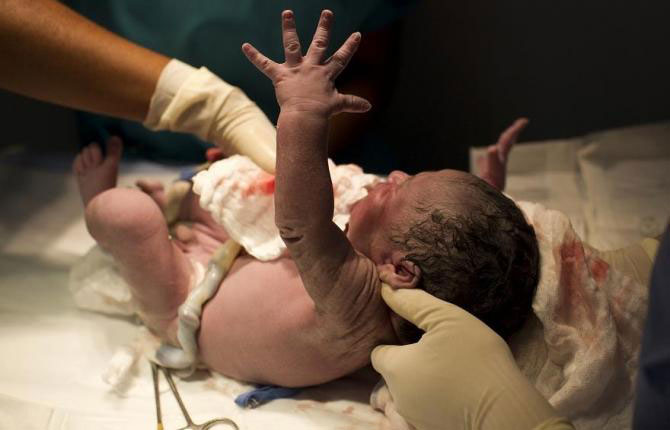Book Preface - Your feet in theirs

It can be easy to forget that newborns will take time to become attuned to their new physical and emotional home. Perhaps, in some cases, it would be valuable to revisit our Western ways of thinking and providing when it comes to how ‘at home’ they feel.
Adopting the practice of placing your feet in your baby’s ‘shoes’ in their early seconds, hours, days and months of life can assist greatly in creating an intimate relaxed response for your baby, thereby opening yourselves further for a love beyond measure.
Just for a few minutes, imagine all your baby's first times from the moment of birth. It will be the first time your newborn has felt air, another's skin and hands, and breath from someone else move across their face, let alone taken their first breath.
This is the first time they have been exposed to the external world's light, temperature fluctuations and our first levels of noise. It is the first time they have been wrapped or clothed in anything but fluid, let alone bundled up in a car sear that allows them no room to move, or been taken to malls in front packs, or been handed from one person to the next.
It is the first time they have had to digest food or make a bowel movement in the way we do. It will be the first time they have been placed in the positions outlined in BabyCues, experienced the calming techniques, and been taught the difference between night and day.
All to often we expect our newborns to adapt quickly to their world. Particular happenings and beliefs have become so accepted within society and our adult lives, we often overlook the fact that some of these things we do could have a huge impact on them.
An example of this, one that we could change to dramatically improve the digestive functioning and mental well-being for all newborns at birth, is this: some Western societies, are largely taught that at delivery it is necessary to clear the airway passage of meconium for all newborns. Fingers are shoved in the newborn's mouth, or tubes forced up the nostrils or down the throat, within the first seconds of birth. It often surprises parents when they hear that this procedure is only meant to be implemented when a baby is not alert and active, and are therefore showing signs of meconium aspiration. However, many newborns are still undergoing this abusive 'welcome' even if they do not have this serious condition. When this happens, the baby writhes in a state of physical and emotional trauma. This is clearly visible as they cry out and exhibit the startle reflex (arms moving outwards), pleading for security and telling us they do not feel safe - they don't want it - while their oesophagus potentially sustains damage from the tube.

As a natural process, the startle reflex often accompanies the first expansion of air into a newborn's lungs at birth. However, if the baby does not feel secure for any reason in those early stages, large gulps of air are ingested as they try to catch their first breaths. My research shows that this excessive intake of air is a highly probable cause for reflux to be experienced on a newborn's first day - the air they have swallowed forcing out the milk that sits on top of it. Quite simply, the inclusive, respectful change of meconium aspiration and focused secure handling at birth could lessen the number of newborns suffering reflux on Day One.
Another example of 'putting our feet in theirs' is to examine the practise of taking newborns away from mothers to be placed in a plastic container, bassinette or cot with crisp, chemically-washed sheets pressing against the skin. What is wrong with keeping babies safely close to the familiar drumming beat of the mother’s heart, in a balanced manner, for the first minutes, hours, days and initial months? By allowing newborns to lie for long periods on their mother’s, and father's, chest during the delicate rest and recuperation period in the first few weeks, we naturally optimise the surges of love, affection, security, rest, sleep, food and energy for the whole family.
The same awareness applies to a newborn’s physiological capacities. What we believe may be a small amount of food or a small adjustment for their systems can be quite the opposite. For example, science really doesn't explain how breast milk adapts to the ingredients and nutrients consumed by breastfeeding mothers. A daily cup of coffee may buzz your baby out for hours. That small ice-cream you had could see your wee one feeling discomfort. Since some intricate details of breast milk composition remain a mystery, erring on the side of caution is sensible.
While placing your feet in theirs remember that practice makes perfect. Don’t be too hard on yourself if you feel a little overwhelmed sometimes. This is natural. It will take time to adapt and relax into the new challenges and workload. Have faith in yourself and be gentle on yourself as you embrace your new role for the first, second or multitude of times.
I wish you well on your journey of parenthood, learning to walk in ‘Size 0’ feet again and growing with them. I sincerely hope these teachings will help you experience your oneness of family in the best way possible – in the way Mother Nature intended.
With heartfelt wishes, enjoy nurturing with nature and appreciating your baby as a ‘feeling and responsive being’.


